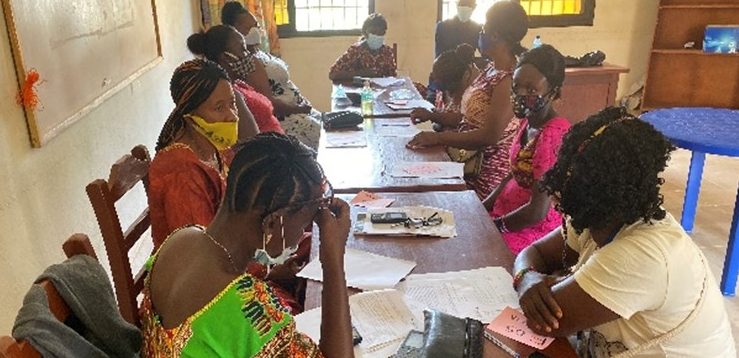
Gendered experience of Sierra Leone’s close-to-community providers during COVID-19: a study report
This report (read it here) was produced by the team at COMAHS, University of Sierra Leone. It was produced as part of the Sierra Leone strand of the ‘The gendered experience of close-to-community providers in fragile and shock-prone settings during the COVID-19 pandemic’ study (more on that work here).
Close-to-community (CTC) providers play an important role in community health service provision. This is particularly important in fragile and shock-prone settings, where they often link the most marginalised and hard-to-reach communities with the health system, a fact that has been demonstrated during the COVID-19 pandemic.
The COMAHS team’s research focused on community health workers (CHWs), a specific cadre of CTC provider in Sierra Leone. Their study explored the roles of CTC providers and their gendered experiences during the COVID-19 pandemic.
The report provides an overview of the study and makes recommendations as to how the working lives of community health workers in the country – especially female workers’ – might be supported, both during COVID-19 and more generally, and how the health system itself might also benefit.
The brief associated with this report can be read here.
Briefs, reports and presentations on the various aspects of the wider study – The gendered experience of close-to-community providers in fragile and shock-prone settings: implications for policy and practice during and post COVID-19 – can be found here.